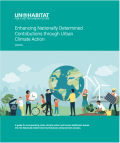
This guide aims to provide practical and succinct opportunities for incorporating urban climate action and human settlement issues into the current future NDC revision and enhancement process, drawing on existing knowledge and networks.
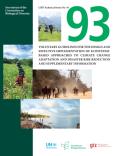
This guideline provides information on principles, safeguards, tools, and a flexible framework to support countries to integrate ecosystem-based approaches into their national biodiversity strategies and into other sectoral policies.
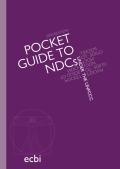
This guide provides negotiators of the UN Framework Convention on Climate Change (UNFCCC) with a brief history of the negotiations on the NDCs, a ready reference to the key decisions that have already been adopted, and a brief analysis of the outstanding issues from a developing country perspective.
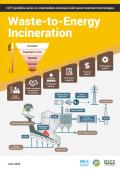
This guideline provides a holistic understanding of waste-to-energy incineration technology as well as proposes key evaluation criteria and a pre-check flow in the municipal solid waste (MSW) decision-making process.
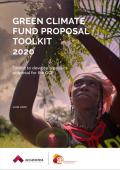
This guide explores the latest Green Climate Fund(GCF) policy changes and funding proposal template in order to provide the most recent guidance to project proponents.
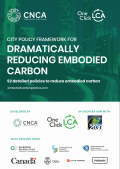
This framework provides guidance for cities considering policies that can deliver the highest impact within their geopolitical contexts and regulatory systems. Over 50 existing policies from leading cities have been evaluated, categorized, and scored according to their potential, cost efficiency, ease of implementation, and enforceability.
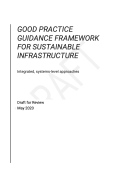
This document seeks to address the gap in the provision of internationally applicable guidance on integrated, systems-level approaches to sustainable infrastructure planning and delivery.
Using Private Sector Development to Achieve a Green Recovery in the Context of the COVID-19 Pandemic
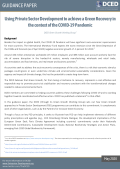
In this guidance paper, the DCED (through its Green Growth Working Group) sets out how green growth approaches in private sector development (PSD) programmes can contribute to post-COVID-19 stabilisation and recovery that is consistent with the transformational changes needed to reduce environmental harm.

The Initiative for Climate Action Transparency (ICAT) assessment guides help policymakers and other users assess the impacts of countries’ climate policies and actions, and can provide the information needed for effective policymaking.
This report summarizes the practices that NRDC found to be the top money-saving, environmental protection opportunities in Bangladesh, which largely overlap with the practices identified in China.
